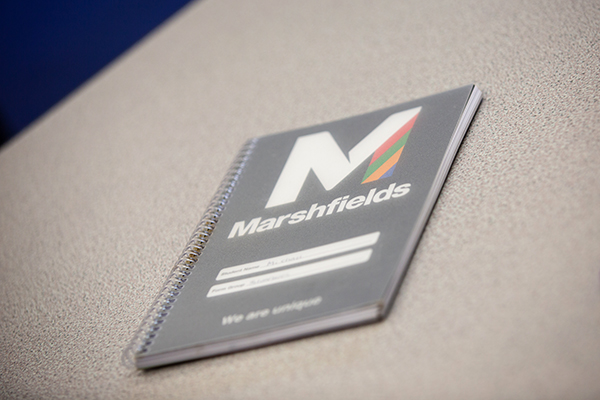Safeguarding
As a School, we are committed to promoting the welfare, safety and personal development of our students. Consequently, we realise the importance of staying up-to-date with the latest safeguarding advice and guidance issued by the government (Keeping Children Safe in Education, September 2023; Working Together to Safeguard Children, July 2018; Prevent Duty Guidance, July 2015; and Female Genital Mutilation Risk and Safeguarding, January 2017)
The School Safeguarding policy clearly sets out our approach to dealing with safeguarding issues and is based on the core values of Prevention, Protection and Support.
If you would like to discuss a safeguarding matter, please contact: safeguarding@marshfields-sch-co.uk
We would like to take this opportunity to remind you of the safeguarding procedures which exist within the School. The School ensures that all staff (including temporary, supply, volunteers and peripatetic) renew their safeguarding training annually. This means that their knowledge is fresh and up-to-date in what can be a complex and fast-moving area of education. The training makes explicit reference to:
- Our systems which support safeguarding, including the staff Safer Code of Conduct, the role of the designated safeguarding lead (DSL and their Deputies), the Behaviour Management Policy, and the safeguarding response to children who go missing from education.
- The early help process and their role in it, including identifying emerging problems, liaising with the DSL, and sharing information with other professionals to support early identification and assessment.
- The process for making referrals to local authority children’s social care and for statutory assessments that may follow a referral, including the role they might be expected to play.
- What to do if staff identify a safeguarding issue or a child tells them they are being abused or neglected, including specific issues such as FGM, and how to maintain an appropriate level of confidentiality while liaising with relevant professionals.
- The signs of different types of abuse and neglect, as well as specific safeguarding issues, such as child sexual exploitation (CSE), child criminal exploitation, peer on peer abuse, Female Genital Mutilation (FGM) and radicalisation.
If concerns are raised about the welfare or safety of a child, the designated safeguarding lead (DSL), or in an emergency situation the individual member of staff, must give careful consideration as to whether a referral needs to be made to children’s social care. If this course of action is taken the School will usually inform parents, unless there are compelling reasons for not doing so.
Once a referral has been made the School works closely with a range of relevant agencies in order to bring about the best outcome for the child.
Review of our Safeguarding approach
Policies are reviewed annually and their implementation is regularly reviewed by governors. In the last 12 months, this has included a report by the governor responsible for safeguarding.
RADICALISATION, EXTREMISM AND THE PREVENT DUTY
As a School we have a statutory duty to “prevent people from being drawn into terrorism” (Prevent Duty Guidance, July 2015). The risk of radicalisation and extremism in Peterborough City is deemed to be medium and given the demographics of the local area, threats are posed by both Far-Right Extremism / Neo-Nazism and Islamic Extremism.
In our day-to-day contact with students we should look out for the following:
Graffiti symbols – Nazi Swastikas and the numbers 14 (the fourteen words “We must secure the existence of our people and a future for white children”); 18 (Adolf Hitler); 88 (Heil Hitler); and 28 (Blood & Honour).
- Accessing extremist material online – website and social media.
- Reading extremist books (e.g. The Anarchist Cookbook or My Struggle) or listening to extremist music.
- Changes in behaviour or friendship groups.
- Voicing racist opinions or using racist/hate language.
- Inciting violence, crime or anti-social behaviour.
- Condoning or supporting violence or harm towards others.
If you are concerned that a young person is in danger of radicalisation or is being radicalised please contact Ian Graham-Well, School Prevent Co-Ordinator, or the police.
FEMALE GENITAL MUTILATION (FGM)
Around 137,000 girls in the UK are at risk of Female Genital Mutilation. These girls can be of any age, even babies, and are predominately from East and West Africa. Girls from Somalia, Guinea, Sierra Leone, Djibouti, Egypt, Eritrea and Mali are at particularly high risk.
FGM, which usually takes place during the summer or “cutting season”, is a form of abuse with no religious justification.
If a member of staff has been informed that FMG has taken place or observed FMG – there is a mandatory personal duty which requires the individual professional to make the report. The recommended route for doing this is to call 101.
However, if a member of staff suspects that FMG has been carried out, or are concerned about the risk, they should follow the School Safeguarding procedures.
CHILD SEXUAL EXPLOITATION
CSE is a form of sexual abuse where victims are manipulated or forced into taking part in sexual acts. This can either be part of a consensual relationship or in return for attention, gifts, money, alcohol, drugs or any other bribe. Students at our School are particularly vulnerable to CSE as a result of their special educational needs.
The warning signs for CSE include:
- Mood swings / being emotionally upset.
- Poor attendance or a pattern of non-attendance.
- Change in physical appearance / appear dishevelled.
- Misusing alcohol or drugs.
- Chatting online to people they have never met.
- Hanging around with older people.
- Unexplained gifts.
- Showing inappropriate sexualised behaviour.
- Sexual Transmitted Infections (STIs) / seeking emergency contraception.
If a child starts to exhibit or is exhibiting, any of the behaviours highlighted above please follow the School’s safeguarding procedures. If you feel the child is in immediate danger contact the police.
PEER ON PEER ABUSE
We recognise that children are capable of abusing their peers. Abuse will never be tolerated or passed off as “banter” or “part of growing up”.
A safeguarding issue would emerge if a student’s behaviour was deemed:
- Serious, and potentially a criminal offence.
- Could put STUDENTS in the school at risk.
- Violent.
- Involves students being forced to use drugs or alcohol.
- Involves sexual exploitation or sexual abuse, such as indecent exposure, sexual assault, or sexually inappropriate pictures or videos (including sexting).
If a student makes an allegation of abuse against another student the School will follow its normal safeguarding procedures.



